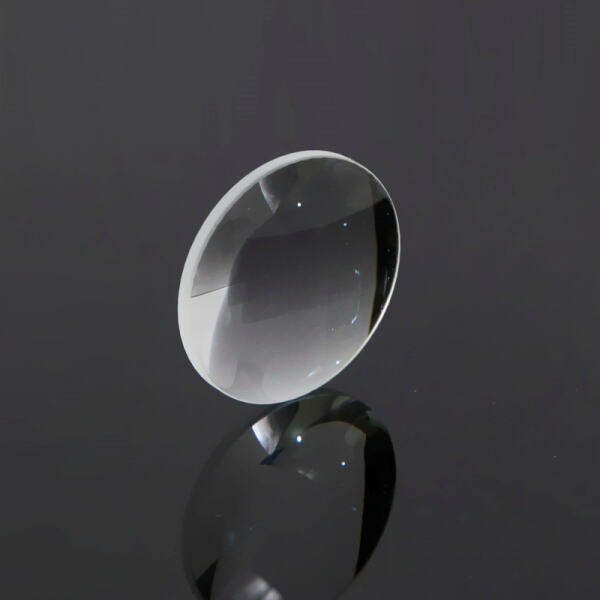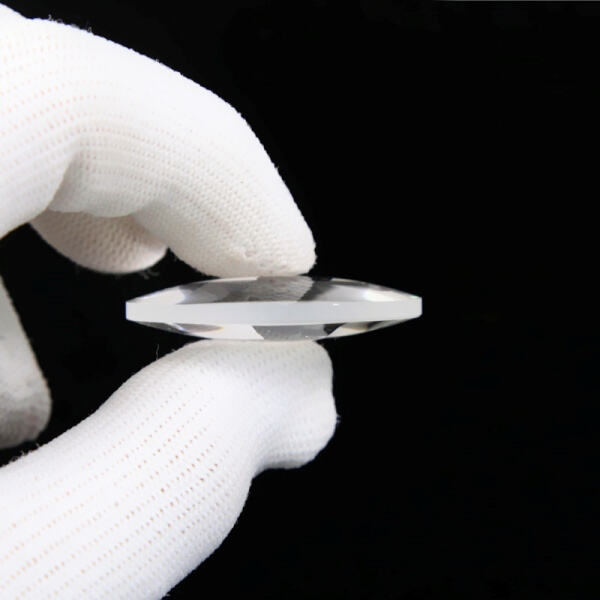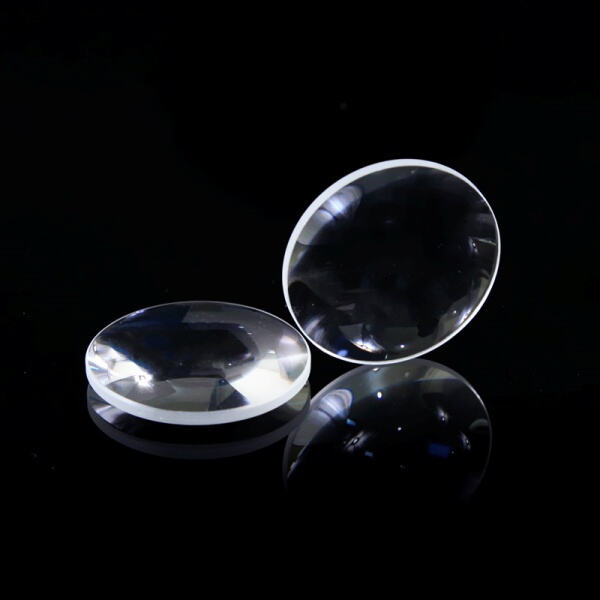
-
+86-156 60188203
[email protected] - Dazhai, Nanyang City, Henan Province China
- Mon - Sat 8.00 - 18.00 Sunday Closed

The 38mm double convex lens is a type of lens that is grown in us to help us read them. It has two surfaces that are both curved outwards. That’s why we call it "double convex"—because either side of the lens is mound-shaped, curving outwards. These are very important lenses and used in many daily devices such as cameras, telescopes, and microscopes. They concentrate light so we pee more pictures and reflections.
It is a four double convex lens and that works by bending light. Bending means that the light does not go in a straight line but rather changes direction. This lens is able to "converge" or bring rays of light into a focus when an incoming ray of light is parallel (in a straight line). It can also spread out or “diverge” light rays that aren’t straight. This action of bending light is a crucial component for how many devices operate, such as cameras that help to take pictures and microscopes that enable us to see small things up close and personal.
As light travels through the lens, it bends and forms an image. What we see looking through a lens is an image. This is because the size and location of the image is based on the distance from the object to the lens. So, for instance, if you have an object very far from the lens, the image is going to be smaller. The image may be smaller if the object is distant. The lens can also change the appearance of the image, making it appear larger or smaller.
When you want a Double Concave Lens for a project it is really crucial to select the right one for you. Several things to consider are your training: The first of the camera have a specific measurement that called focal length. This is the distance of the lens to the point where the image becomes clear. For this, you need to look at the diameter, the term that indicates how wide the lens is. Finally, youll want to assess the thickness of the lens, meaning how thick it is between each of its curved surfaces.

It is very important to keep your four double convex lens in good condition. It is something that you should clean frequently if you want to see clearly through it. To clean it, use a soft cloth or brush to gently wipe off any grime or dust that may settle on the lens. You shouldn’t use any kind of strong chemicals or a rough material, as both of these can scratch or ruin the lens of the glasses and make it difficult to see through them.

Many applications use four double convex lenses. You find them in cameras and telescopes and microscopes. They are also used in medical instruments called endoscopes, which allow doctors to view inside a patient’s body for examinations. That helps a lot to say what illness is and what treatment would be suitable for a person.

These advantages make four double convex lens so popular. And they excel at capturing and transmitting focused light to produce sharp images. Are constructed with durable materials capable of withstanding extreme heat and pressure, resulting in long life. Moreover, their ability to refract light in different was gives FN a high degree of flexibility, permitting FN ou be used in a variety of optical devices. That versatility is part of what makes them so valuable in science, technology and medicine.
We have sales after-sales team, more than 60 employees. Our company extensive experience in exports imports as well as cooperation. Our customers are from optical firms universities, research institutes, research institutions, research institutions, etc., from more than 30000 four double convex lens across more than 80 countries across world.
With ISO9001 China's High Technology New Technology Enterprise Certificates, CE, SGS, our company more than 300 sets complete four double convex lens, with more than 10 researchers. We able to guarantee high-quality.
Our company's advantages customized optical prism lenses customers ' drawings ranging from tiny to huge, the four double convex lens production models online species reached over 400, we have much knowledge various items that can be customized all detection equipment
Nanyang Jingliang is optical component maker covers the area of 10,000 square meters. Our company is focused the processing of optical prism lenses production optical systems and sales. We satisfy all your optical component four double convex lens
Copyright © Nanyang City Jingliang Optical Technology Co., Ltd. All Rights Reserved — Privacy Policy